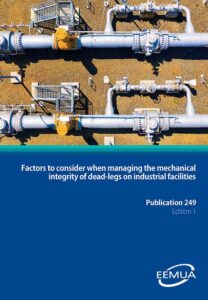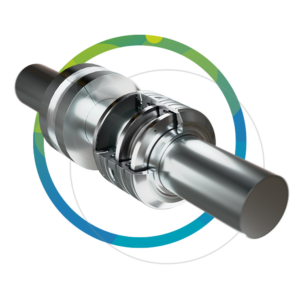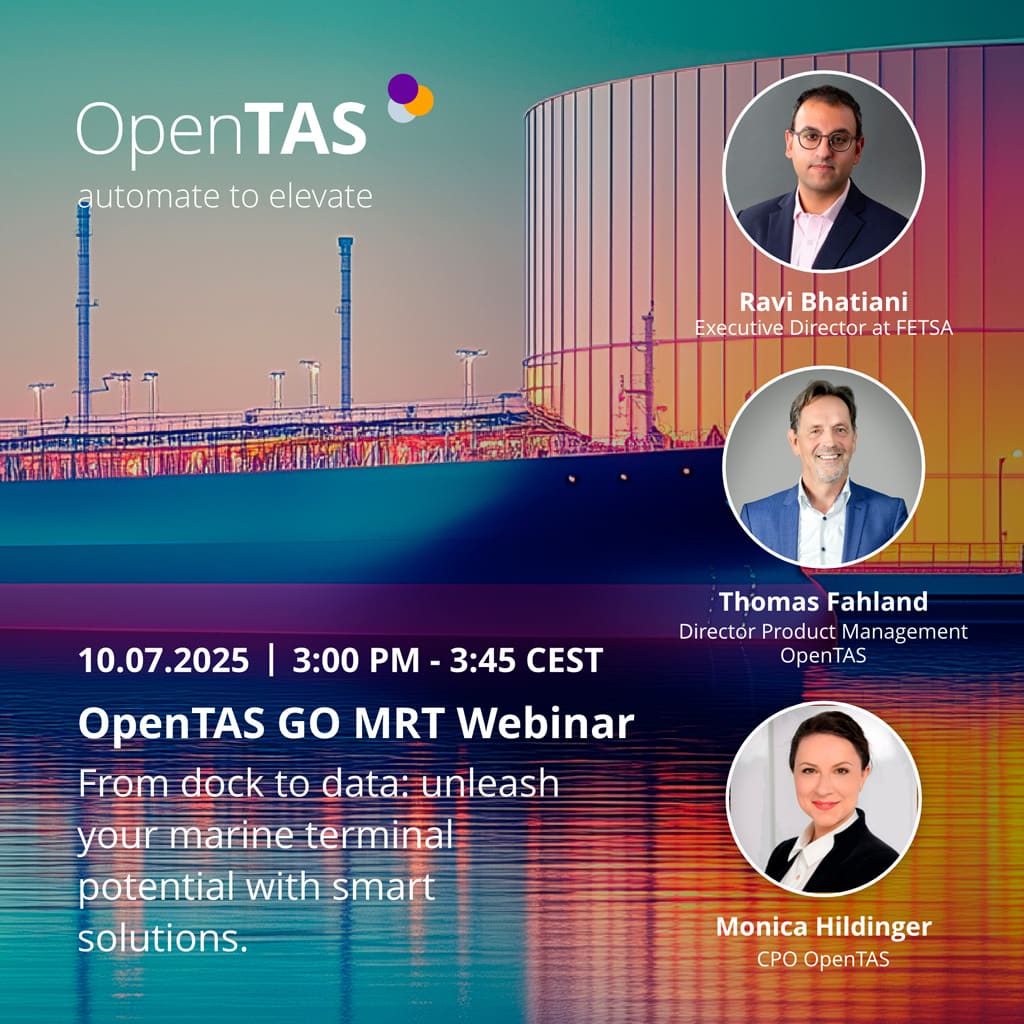Dearman Systems explains why multi-terminal data unification should be a part of your digital transformation strategy
Founded in 1988, Dearman Systems is a global leader in terminal automation and enterprise management software for the bulk liquid storage industry. From its offices in Tucson, Arizona and Houston, Texas in the US, Dearman serves nearly 200 customers worldwide.
TERMINAL AUTOMATION SYSTEMS AND A DATA-FOCUSSED PRODUCT STRATEGY
Dearman’s software handles a wide variety of terminal types including bulk petroleum, chemical, renewable fuels, aviation, liquified natural gas (LNG) and liquified petroleum gas (LPG) terminals. The company offers two implementations of its terminal automation software depending on the size and scope of the operation: RTG (Ready-To-Go Terminal Automation) for small/medium sized sites and TAS.net for larger sites.
Both offerings are flexible and open to integration with other siloed systems and hardware, including meter skids, weight scales, tank gauging systems, and secure access control systems. Dearman’s highly qualified technical sales staff helps customers choose the ideal system for their terminal, based on the number of devices that need to be integrated.

Through its Terminal Graphics Builder module, Dearman enables customers to take complete control of their terminal’s process management functions and monitor product movement in realtime. Users can see terminal overview graphics, specific loading or unloading bay activity, and current product storage location information.
Knowing that terminal configurations and their level of existing automation can widely vary, Dearman is committed to offering adaptable terminal automation systems that do not impose any hardware requirements. Dearman has pre-built connectors to more than 25 popular field devices and has built its core software with a modular design so it can be efficiently customised and tailored to customer needs. Once field devices are integrated, Dearman’s software ensures secure access to the terminal, accurate product movement and measurement, and the appropriate documentation and reporting is available for all entities involved in the transaction.
Additionally, dedicated, hands-on support is a critical component of the Dearman customer experience. The company employs a well-trained customer support staff and offers 24/7 support to ensure operations go uninterrupted allowing product and its related data to keep flowing.
MULTI-TERMINAL DATA UNIFICATION
Aside from helping customers automate processes such as load authorisation, product movement (via multiple transportation methods), product measurement, documentation, and reporting at the individual terminal level, Dearman also enables its customers to continuously push their terminal data to a centralised location.
Dearman’s UNITY product is a complete multi-terminal data unification platform that enables companies to share data between a central office and any number of terminals. UNITY can accept data feeds from a wide variety of open systems and protocols.
UNITY securely unifies data into a central hub and provides a reliable backup of on-site servers running RTG and TAS.net terminal automation systems. Dearman’s philosophy is that it is generally beneficial to run terminal automation systems on-site, near the origination point of field device data, to ensure all communications are captured and utilised by the terminal automation process control. This distributes edge compute resources to each terminal and ensures operations are not interrupted by an internet outage. At the same time, all terminal data is passed to UNITY and UNITY has write access to individual terminals that are connected to the system.
A CENTRALISED DATA SOURCE MEANS MORE POWERFUL BUSINESS APPLICATIONS
UNITY knocks down data silos between terminals and serves as a platform for running business applications that draw on near real-time data from all your terminals. Instead of having to manually share data with the corporate office, data is automatically passed to a central system which saves time and improves accuracy. UNITY can effectively eliminate the tedious task of sharing stale spreadsheets from siloed data sources.
Accounting and reporting: Accounting and reporting is primarily an accountant interface that provides access to, and reporting functions from, the UNITY database transactions records.
Contracts and pricing: The contracts and pricing component of UNITY allows for the management of complex and diverse contracts and pricing mechanisms including buy side, sell side, throughput, fee based, hourly based, and non-monetary price items. It establishes contract governance policies in accordance with an organisation’s established business rules ensuring consistency, accountability, and improved visibility to authorised personnel.
Invoicing: The invoicing component of UNITY allows users to generate invoices for monetary and time value of products and services. Invoicing can take place automatically or can be presented to managers for final approval before billing action occurs.
Inventory management: Inventory management is a fully functional dual entry system that provides a full audit trail for complex bulk liquids distribution inventory and reporting requirements. Immediately know which position holders have what products across all terminals.
Scheduling and customer orders: Batch, block, and single orders for any type of transport provide your customers with the ability to pre-determine the shipment or transfer of products. Simple authorisation workflows, self-service scheduling, and realtime status listings improve transparency in the supply chain and reduce the need for manual communication.
Enterprise reporting: Dearman has recently built a simplified data structure for accessing all your terminal data in the business intelligence solution of your choice.

WHY UNIFY?
Aggregating terminal data into a single system might sound like an excellent digital transformation move, but is there a catch? What are the actual business benefits for setting up a centralised platform?
- Central data source to draw on: Whether you use Dearman-built business applications or third party applications, you have a single database to pull from.
- Data resiliency: If a server goes down at a terminal, you can fire up a new server and restore the data from the central system.
- Powerful insights: When you can slice and dice all your operational data in one place, you can unlock insights. At the very least, business reporting will be much less time consuming.
- Security: Dearman has deep expertise in securely transmitting and storing aggregated field device data. UNITY’s architecture makes it a safe place to keep all your data.
After considering the benefits of multiterminal unification, it is clear that bulk liquid storage companies can enhance their operations by having all data in one place. Ultimately, companies that make multiterminal data unification a key part of their digital transformation strategy will have a leg up in the years and decades to come.
For more information:
Dearman CEO Sam Reid will give a presentation entitled ‘A clear path to unified, resilient terminal data and next-gen enterprise applications’ at 1pm CET on 17 March 2021, at StocExpo’s online conference, The Terminal of Tomorrow. Visit www.stocexpo.com/en/digital-conference-2/ for more information and to book tickets.











